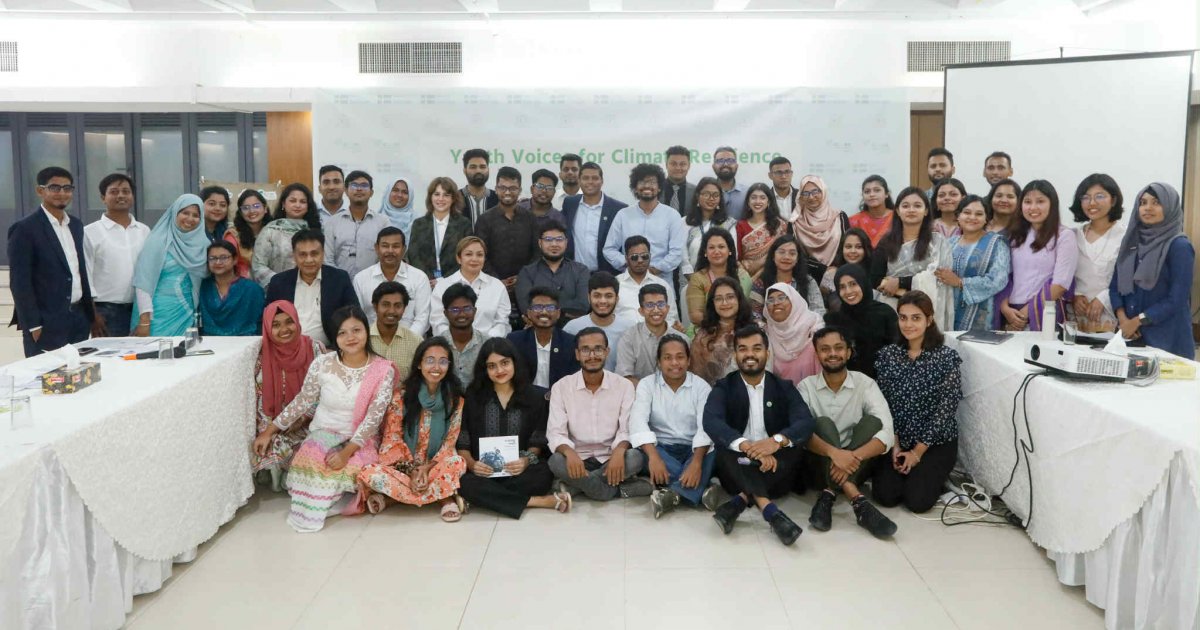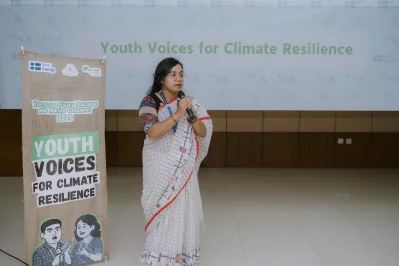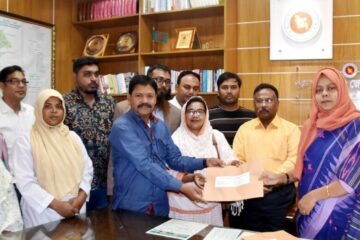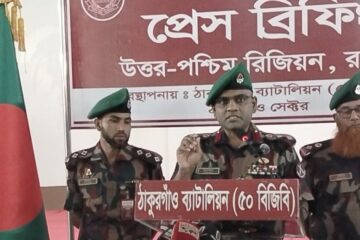Youth leaders and climate advocates on Sunday, October 19, 2025 urged institutional reforms to embed youth voices in national climate policy, following a dialogue at Independent University, Bangladesh (IUB) that spotlighted inclusive resilience and locally led solutions.
The event, titled “Youth Voices for Climate Resilience,” brought together representatives from the government officials, development partners, media professionals and youth networks.
Speakers highlighted ongoing efforts under the CAP-RES (Capacity Strengthening of Multi-Actors to Limit Climate Change Impacts and Enhance Resilience) Project of the International Centre for Climate Change and Development (ICCCAD), IUB and supported by the Embassy of Sweden in Dhaka to empower young people through capacity building, grants, and policy engagement.
Participants stressed that climate resilience must include marginalized communities, especially persons with disabilities, and address cultural and livelihood losses caused by climate change.
Development partners such as Unicef and the Embassy of Sweden reaffirmed their commitment to amplifying youth perspectives in both national and global forums.
Sumaiya Binte Selim Sudha
Youth Focal, CAP-RES Project, ICCCAD
“At ICCCAD, we believe youth are not just participants but key drivers of climate action. As we look ahead to COP30, young people must be meaningfully represented in shaping climate policy. Through the CAP-RES Project, we are committed to empowering youth with the knowledge, skills, and opportunities to build climate resilience. Together, we can amplify youth voices and drive collective action toward a more equitable and climate-resilient world.”
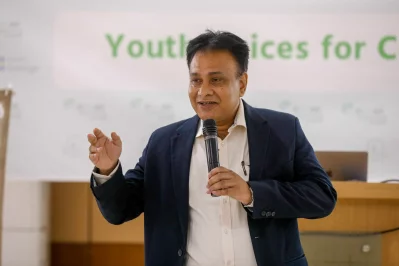
Prof Dr Md Hafizur Rahman
Focal, ICCCAD and Head, Department of Environmental Science and Management (DESM), IUB
“Bangladesh has become a leader in climate advocacy, and much of that credit goes to you, the young changemakers who are turning awareness into action. This is not just a seminar or workshop; it is a movement, a reminder that every small effort you make today shapes the resilience of tomorrow. I look forward to the day when a new Dr Saleemul Huq (OBE) emerges from among you. A leader who may carry forward Bangladesh’s legacy of climate innovation and global leadership.”
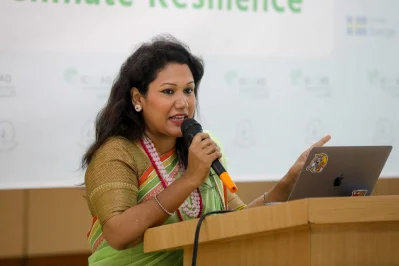
Maria Aktar
Project Manager, CAP-RES, ICCCAD
“Through CAP-RES, we have trained over seventy young fellows, distributed forty-three small grants and supported twenty-seven capacity-building initiatives, reaching nearly thirty thousand people across Bangladesh. These youth fellows are not only leading climate movements; they are developing practical, community-driven solutions. From disaster response and relief distribution to policy advocacy, our fellows demonstrate that youth leadership is not a distant idea, it is a present reality.”

Md Rehanuz Zaman
ICCCAD Youth Fellow, 2025 Cohort
“Young people in last-mile communities still lack the tools, platforms, and access to climate data needed to represent themselves effectively. Bridging this gap and strengthening data systems is essential to ensure meaningful youth inclusion in decision-making and support evidence-based climate adaptation planning.”
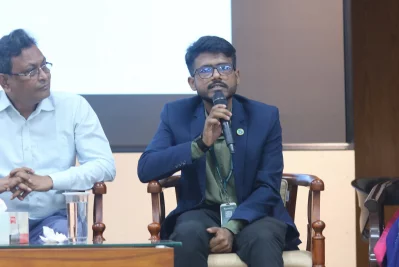
Md Al Imran Khan Rabby
ICCCAD Youth Fellow, 2025 Cohort
“Fast-tracking climate finance and activation of the Loss and Damage Fund are vital for Bangladesh’s resilience. Ensuring transparent, accountable, and inclusive mechanisms in fund allocation and implementation is crucial to translate commitments into real impact for all vulnerable communities.

Shah Rafayat Chowdhury
Co-Founder and President, Footsteps Bangladesh
“Climate change is not an isolated issue; it catalyzes every other challenge we face from health crises and migration to food insecurity and economic vulnerability. It is not enough to have policies or budgets on paper. When floods hit or cyclones strike, what communities need are tangible solutions: logistics, transportation, coordination and preparedness, not just short-term relief drives.”
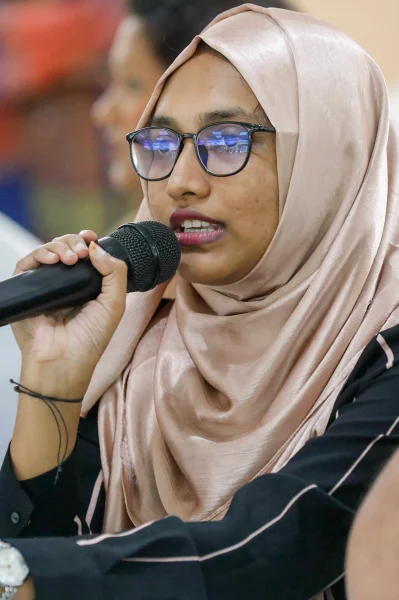
Farzana Faruk Jhumu
Member, UN Youth Advisory Group on Climate Change
“Despite being one of the most climate-vulnerable nations in the world, Bangladesh still does not have an official green negotiator at COP. To secure the funds, policies, and programs that our communities urgently need, we must strengthen our understanding of these mechanisms and engage proactively at every level. Young people can bring fresh perspectives, innovative ideas, and relentless energy to global forums. But to make a meaningful impact, youth engagement must be guided, strategic, and connected to national priorities.”
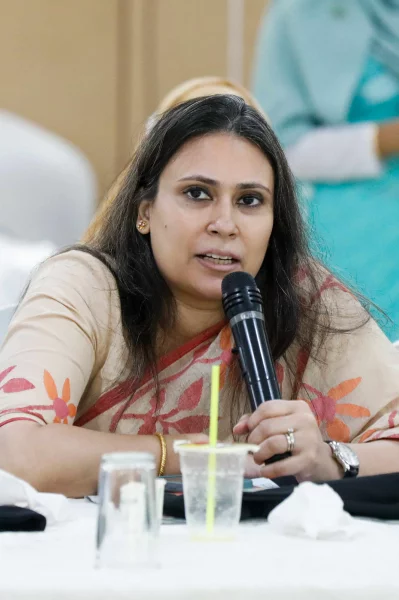
Nuzhat Jabin
Country Director, Christian Aid Bangladesh
“We often talk about inclusion and engagement, yet bureaucratic hurdles and structural barriers still prevent communities, especially the most vulnerable, from having a meaningful say in decision-making processes. It is not enough for communities to be present at dialogues or workshops. They must have the tools, platforms, and authority to shape policies and programs that affect their lives.”
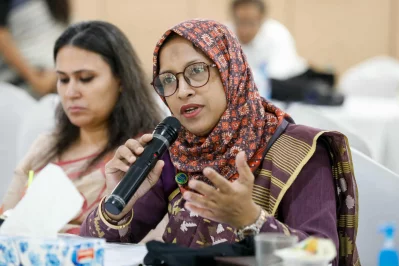
Sanzida Yesmin
Deputy Secretary, Ministry of Disaster Management and Relief
For the fellows who will be attending COP, I urge you to keep three key issues at the center of your discussions: Adaptation, Nature-Based Solutions, and Just Transition. We must also prioritize increasing investments in resilience before disasters strike. Youth fellows should guide rural teenagers toward meaningful engagement instead of passive screen time.
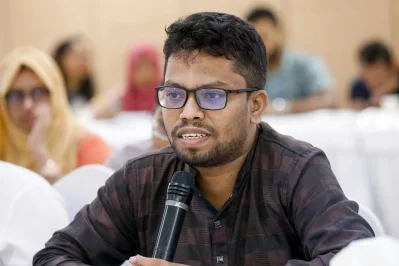
Shohanur Rahman
Founder and Executive Coordinator, YouthNet Global
“One of the major challenges in Bangladesh is that most initiatives remain heavily Dhaka-centric, making true decentralization extremely difficult. To ensure a fair and sustainable future, the concept of a just transition must be inclusive and extend to all regions and communities of Bangladesh.”

Dr Shah Abdul Saadi
Deputy Secretary, ERD, Ministry of Finance
“Youth are not only the most affected but also the most capable of driving the solutions we need. We must align our mitigation strategies with a just transition approach that secures livelihoods and creates opportunities, especially for young people. It is crucial to align ministries and harness local revenue streams to strengthen our national adaptation agenda.”

Kazi Amdadul Hoque
Senior Director (Strategic Planning) and Head of Climate Action, Friendship
“We must ask where our climate funds actually go. Studies show that only about ten percent of allocated funds truly reach the grassroots communities, the very people who face the most severe impacts of climate change. Our rural communities are resourceful and resilient — they only need the right support to lead their own climate solutions,”

Moumita Das Gupta
Senior Research Fellow, Centre For Climate Justice-Bangladesh (CCJ-B)
Even a small youth-led initiative can spark broader policy conversations and drive meaningful change. We have seen this in Bangladesh, where young advocates have pushed for stronger climate litigation and legal recognition of loss and damage, influencing how resilience is framed nationally.
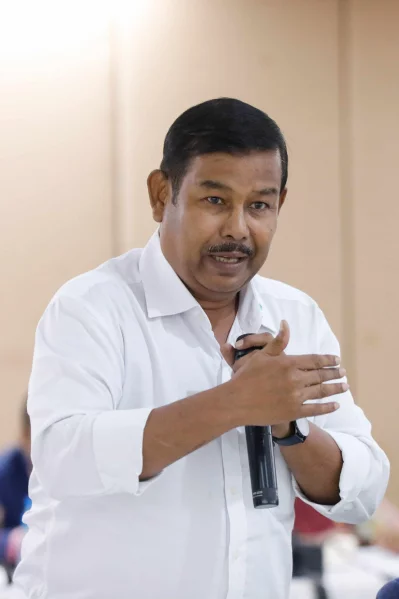
Subir Kumar Saha
Coordinator, Centre for Disability in Development (CDD)
“We need to ask whether climate change is contributing to increasing disability and breaking down family structures. Climate resilience must mean inclusive resilience. When persons with disabilities are empowered to participate fully, we build not only a safer environment — but also a more just and compassionate society.”

Md Mohammad Mohasin
Captain, Bangladesh Wheelchair Cricket Team
“We have the strength, talent, and determination to make a difference — we just need accessible platforms and equal opportunities. Disability does not define limitation; it defines resilience. If society recognizes our potential, together we can create a future where inclusion, dignity, and climate action go hand in hand,”
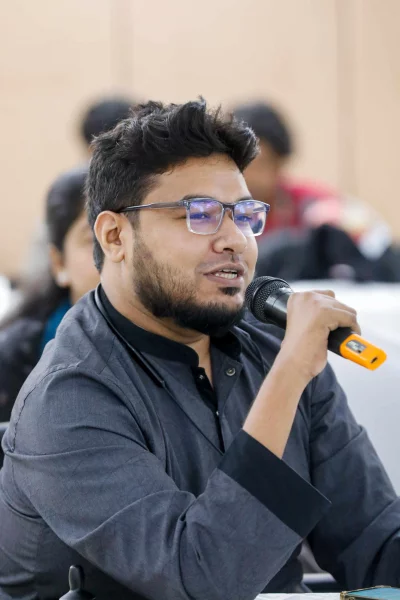
Jahirul Islam
Founder and Executive Director, Team Inclusion Bangladesh Foundation
“Policies sound good in documents, but the real test is in practice. We often talk about climate justice, but we need to begin by changing ourselves. Even small actions reducing plastic use, conserving energy, or supporting inclusive local initiatives demonstrate our true commitment. If we make inclusion a principle rather than a project, real transformation is possible,”
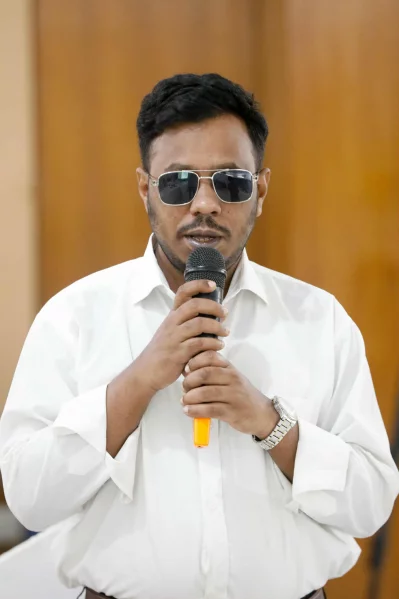
Md Arif Hosen
Capacity Building Officer, Visually Impaired People’s Society (VIPS)
When we talk about climate change, we rarely address how it affects persons with disabilities or the losses and suffering they endure. Without engaging organizations of persons with disabilities (OPDs) and disability rights advocates in climate resilience and adaptation discussions, the transformative change we aspire to will remain out of reach.

Salauddin Ahmed Reza
Senior Broadcast Journalist, Jamuna TV
“I want to encourage you to stay united and patient. We have many youth organizations, all doing great work, but our voice is scattered. When we coordinate, the voice of Bangladesh becomes stronger on the global stage. If we combine our strengths, our message will not just be heard, it will resonate.”
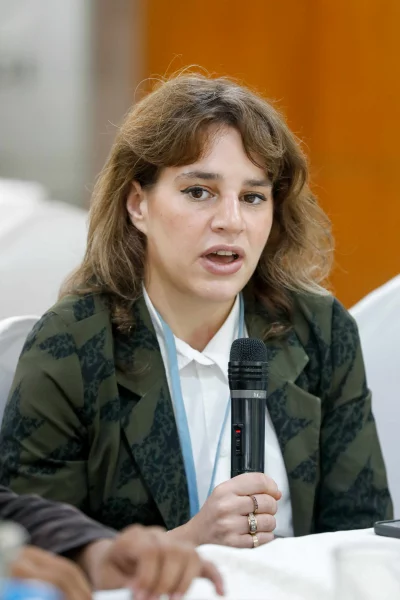
Valentina Spinedi
Programme Specialist – Climate in Dhaka, Unicef Bangladesh
“We are working closely with ministries, development partners, and youth networks to ensure that young people’s voices are not just heard, but reflected in national policy and action. Our role is to stand beside young people, amplifying their vision and their voices. The solutions they design today will define a safer, more sustainable tomorrow. Ahead of COP30, this discussion servesas an example of how youth are already bridging the gap between policymakers, development partners, and civil society.”

Nayoka Martinez-Bäckström
First Secretary and Deputy Head of Development Cooperation, Embassy of Sweden in Dhaka
“After working in this field for many years, I realize I may never fully comprehend the full extent of complexities of climate change, but that is exactly why learning and collaboration matter so much. I know that learning and collaboration are what move us forward. Not every youth needs to go to COP; the real work is happening here in Bangladesh in the villages, schools, and communities where resilience is being built every day. Stay connected, keep learning, and use this network to turn your ideas into lasting impact.”
1. Institutionalize youth representation in national climate policy and COP negotiations.
2. Appoint a dedicated youth green negotiator to represent Bangladesh at global climate forums.
3. Ensure transparency and accountability in the use of the Climate Fund.
4. Remove bureaucratic barriers to include marginalized communities in climate decision-making.
5. Invest in grassroots logistics and preparedness, not just policy documents.
6. Strengthen migration and climate data systems for evidence-based planning.
7. Make climate resilience inclusive by integrating disability rights and accessibility.
8. Align ministries and local funding for a just transition and reduced aid dependency.
9. Expand youth-led training, grants, and innovation through programs like CAP-RES.
10. Coordinate youth networks to amplify Bangladesh’s climate voice globally.
